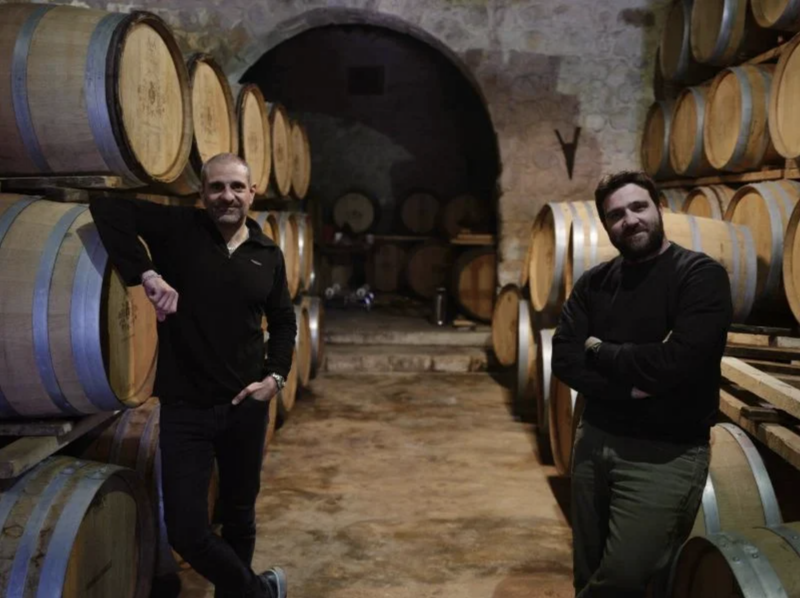
Emile Issa al-Khoury (left) and Fawzi Issa, co-owners of Domaine des Tourelles, on March 26, 2024, in a cellar on the estate at Chtoura in the Bekaa. (Credit: Matthieu Karam)
Twice a month, L’Orient-Le Jour tells the stories of Lebanese firms that bravely entered the local market despite the continuing economic crisis in the country.
In this episode, Fawzi Issa and Emile Issa al-Khoury, co-owners of Lebanon’s oldest commercial winery Domaine des Tourelles, discussed the uniqueness and success of this family-run business.
It all began in the 1860s on the Beirut-Damascus road. The Ottoman Empire commissioned French engineers to widen the road. One of the engineers, François-Eugène Brun, quickly fell under the spell of the Bekaa Valley’s landscape beauty. He moved there with his family and founded the Hostellerie Brun, a small hotel in Chtoura.
“But under the Empire, alcohol was banned,” except for wine produced for the convents’ and monasteries’ religious need, “to the great dismay of its customers,” said Emile Issa al-Khoury, co-owner and associate director of the winery, as he sat behind the steering wheel on this very road.
François-Eugène Brun decided to plant his own vines to produce homemade wine. His first 1868 vintage was released. Domaine des Tourelles, nestled at an altitude of 1,050 meters, was born.
Three generations of Brun, François-Eugène, Louis, and Pierre, succeeded one another at the head of Lebanon’s first winery that succeeded in selling its wine. The winery has seen it all, starting with the end of the Ottoman Empire, the French mandate, two world wars and endless Lebanese conflicts.
During the (1975-1990) Civil War, Pierre Brun kept the winery alive, despite the Syrian army’s occupation of vast swathes of the Bekaa Valley, consuming the cellars’ wine without paying the bill.
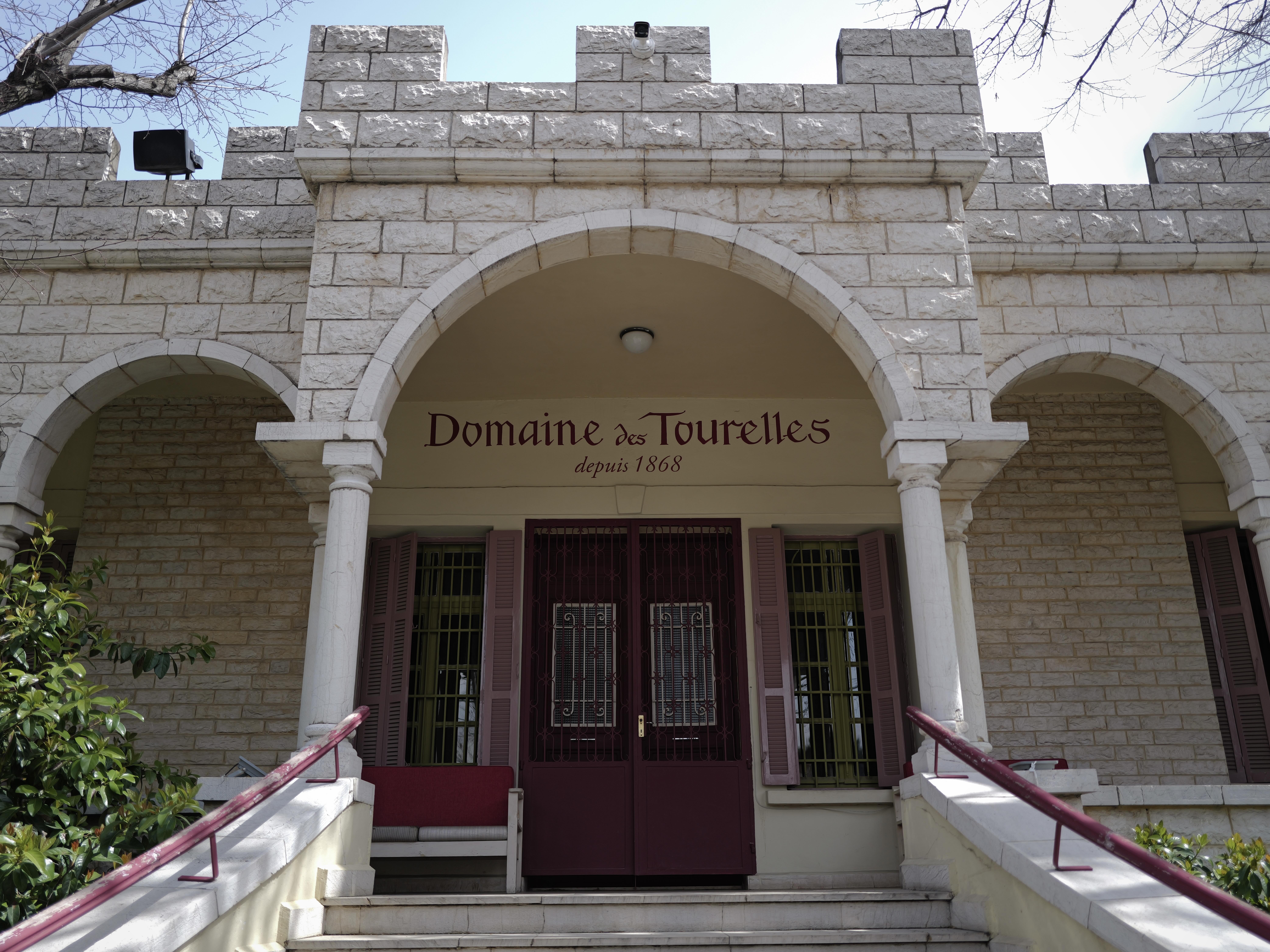 The entrance to Domaine des Tourelles. (Credit: Matthieu Karam)
The entrance to Domaine des Tourelles. (Credit: Matthieu Karam)
But when Pierre Brun died with no heirs in 2000, his family in France decided to sell the winery. Nayla Kanaan Issa al-Khoury, close to the Brun family by marriage, and Elie Issa joined forces to secure the necessary sum. During the same year, they became owners of the famous winery with equal shares.
Through restructuring, investment and production, the company developed for almost two decades, before the 2019 crisis caught up with it. But despite it all, Domaine des Tourelles has turned the crisis into an opportunity.
‘You have to go back to Lebanon’
It wasn’t necessarily a foregone conclusion, however. When the purchase deal was done, the winery was experiencing major difficulties and the project was of epic proportions.
It would take several years to turn the business around. At the end of 2008, Elie Issa called his son Fawzi, a 26-year-old agricultural engineer and oenology student in France at the prestigious Château Margaux.
“My father told me: ‘You have to go back to Lebanon’,” recalled the forty-year-old, who would become the country’s youngest oenologist. “I let my beard grow to impose myself,” he said jokingly.
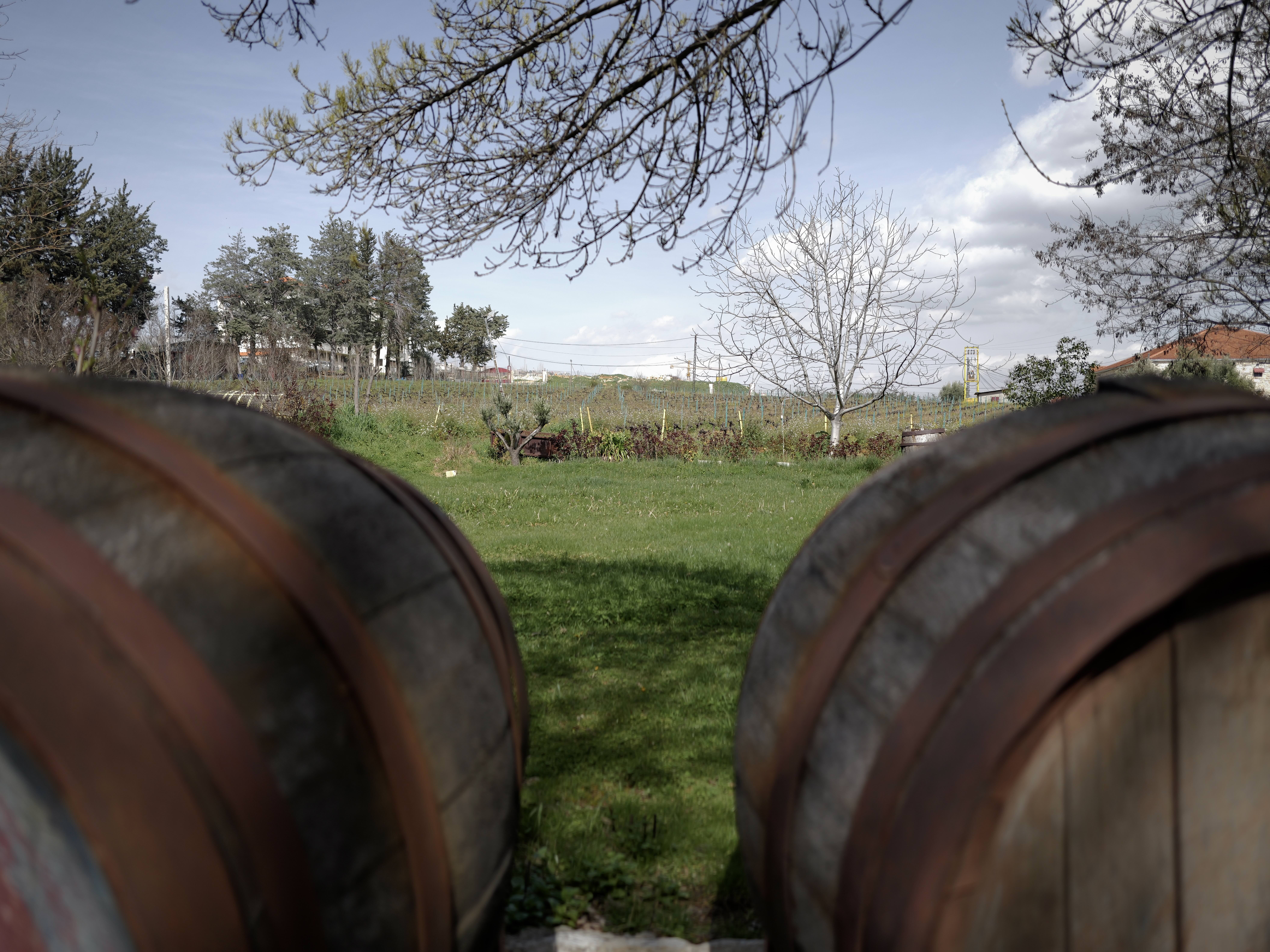 Oak barrels at Domaine des Tourelles. (Credit: Matthieu Karam)
Oak barrels at Domaine des Tourelles. (Credit: Matthieu Karam)
Today, Domaine des Tourelles is run by a team of forty-somethings: Fawzi Issa (co-owner, general manager and oenologist), Emile Issa al-Khoury (co-owner and associate manager), Christiane Issa Nahas (administrative manager) and Johanne Issa Atallah (artistic manager).
Emile, Nayla’s son, and Fawzi played in the gardens of the Domaine des Brun when they were young. “We never thought we’d own the place one day,” said Emile Issa al-Khoury.
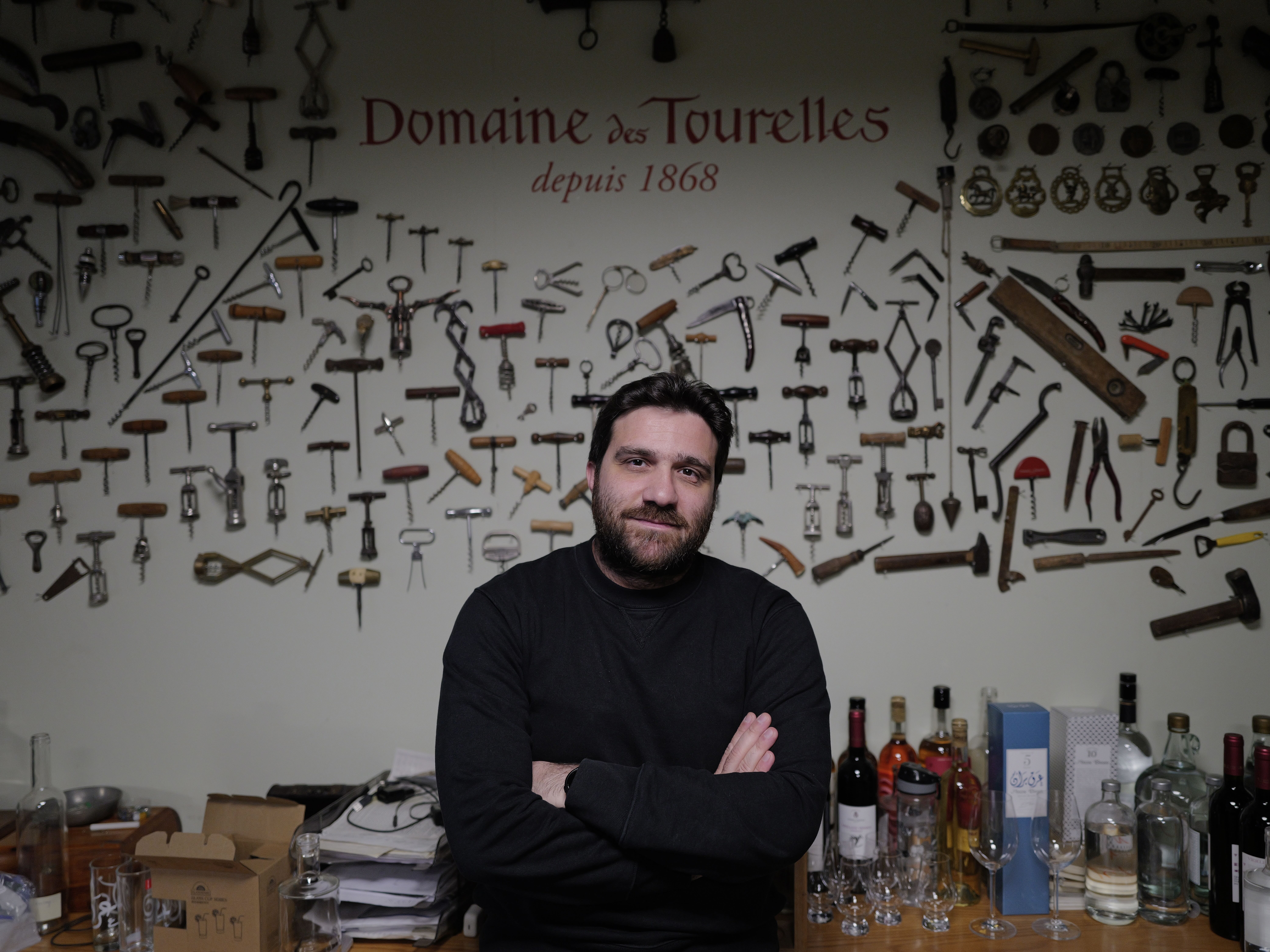 Fawzi Issa in his office. (Credit: Matthieu Karam)
Fawzi Issa in his office. (Credit: Matthieu Karam)
Wine, arak, gin, whiskey
“Domaine des Tourelles is a French winery, but with a 100 percent Lebanese identity,” said the oenologist. “Sixty years ago, it was one of the pillars of Lebanon’s industry before its wine production began,” he recounted.
At the time of the purchase, the winery produced just 10,000 to 15,000 bottles of wine a year. “When I saw the empty vats on the winery, I told myself: Let’s fill them up! Today, we produce a million and a half bottles of wine and spirits a year,” Fawzi Issa said.
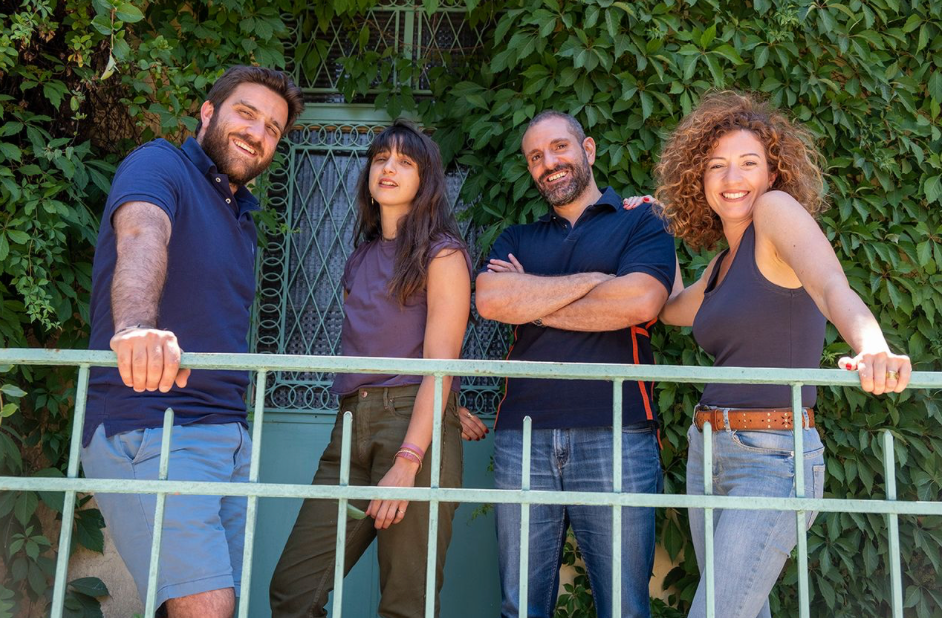 From left to right: Fawzi Issa, Johanne Issa Atallah, Emile Issa al-Khoury and Christiane Issa Nahas. (Credit: Norbert Shiller)
From left to right: Fawzi Issa, Johanne Issa Atallah, Emile Issa al-Khoury and Christiane Issa Nahas. (Credit: Norbert Shiller)
The winery has concrete and stainless steel vats and 350 oak barrels. It is also known for its famous brown arak. “Arak is one of the domain’s strong points. It’s the best-selling [in Lebanon] but also the most expensive [between $4.6 for a 187-ml bottle and $10.5 for a 700-ml bottle],” said Fawzi Issa.
Investing in times of crisis
The winery is the second largest in the market in terms of sales. It produces its own gin (under the GinBey brand) and whisky, marketed under the GlenBey name in collaboration with Établissements Antoine Massoud. Both were launched in 2022. This whisky is also an alternative for low-income consumers who could not afford imported whisky since the start of the 2019 economic crisis.
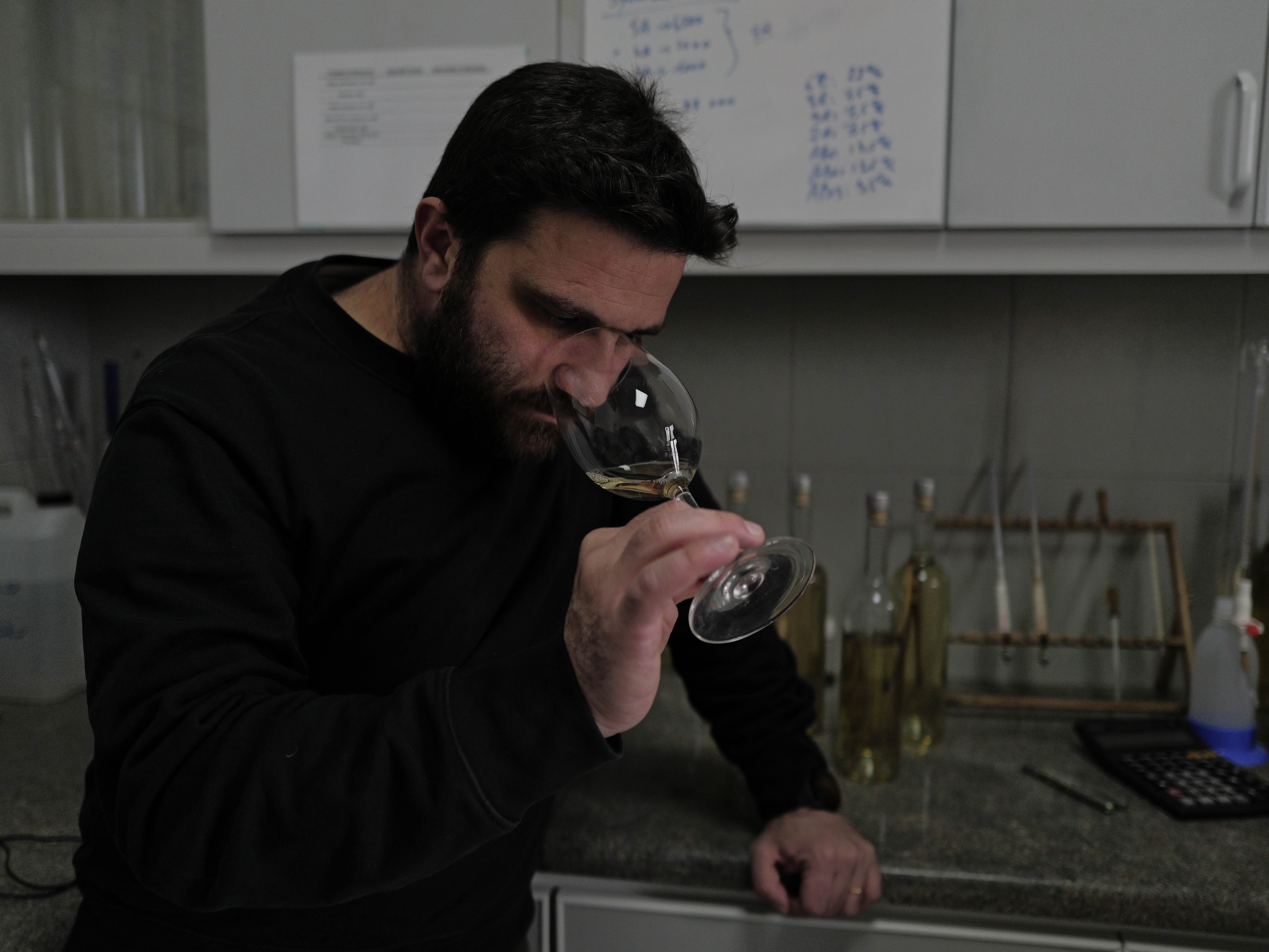 Fawzi Issa tasting a glass of white wine in his studio. (Credit: Matthieu Karam)
Fawzi Issa tasting a glass of white wine in his studio. (Credit: Matthieu Karam)
This crisis was initially a setback for the vineyard which, 10 years after Fawzi Issa’s return to Lebanon, had taken off by investing in new machinery and buying land plots that were turned into vineyards. “At the end of 2019, we had closed our doors for ten days. We were stressed and lost. I even thought about going into sanitary alcohol production with COVID-19!” he recalled.
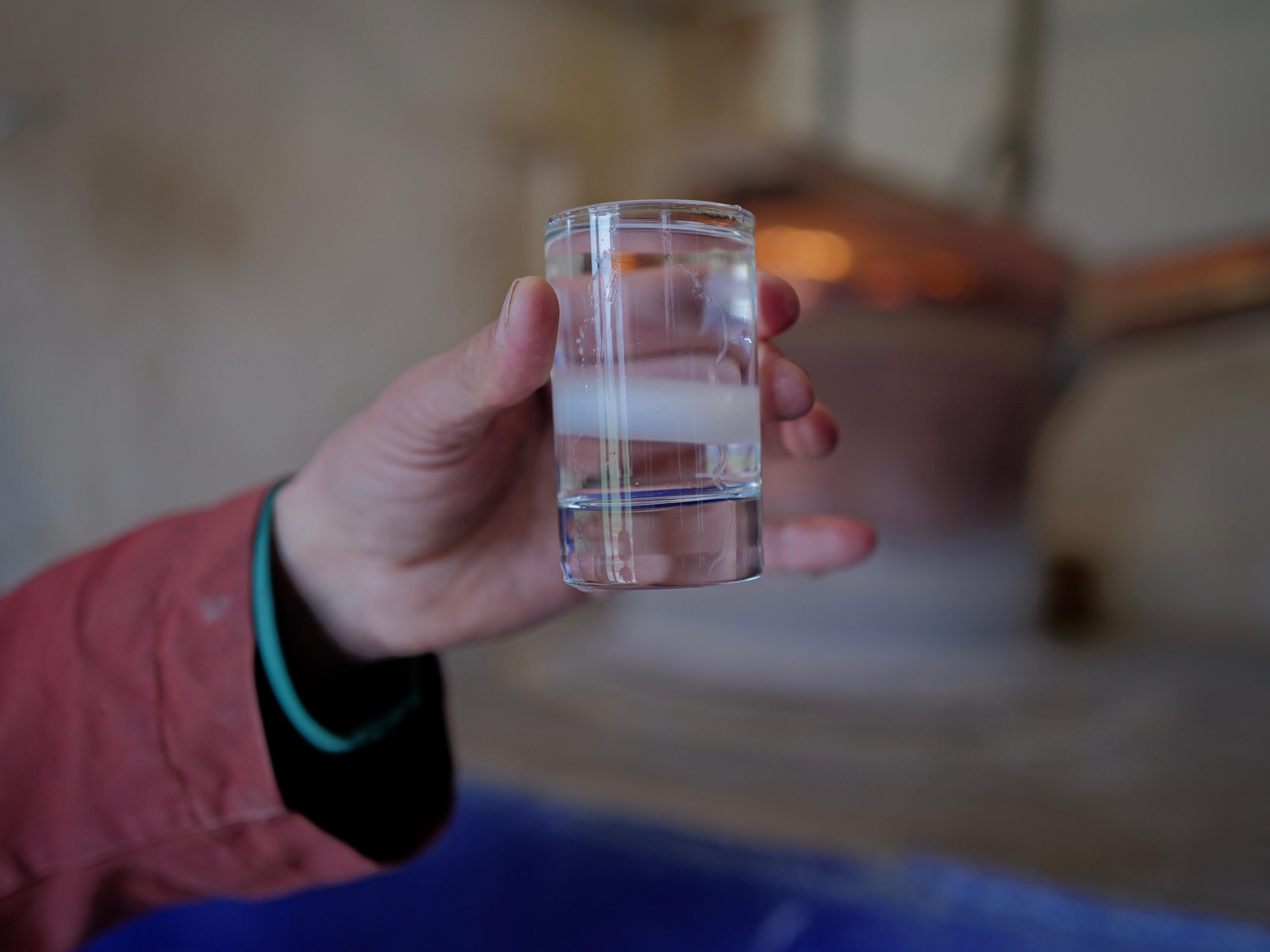 Brun Arak during its preparation. (Credit: Matthieu Karam)
Brun Arak during its preparation. (Credit: Matthieu Karam)
The owners finally got their act together. “We might die tomorrow, as well get involved in projects that give us hope,” he recounted. Despite the banking restrictions on depositors’ accounts, he withdrew money from the winery’s accounts with a haircut and decided to buy land to turn into vineyards. This effort paid off.
Domaine des Tourelles is back!
In 2009, the winery consisted of just 10 hectares. “Today, we have over 80,” said its manager.
In his old four-wheel drive, Fawzi climbed 1,500 meters to Towaiteh, a few kilometers away from Chtoura. Here, a several-hectare vineyard has sprung up on steep terrain. It is an investment of over $500,000 in 2020, despite a 40 percent drop in sales. This strategy enabled him to secure 80 percent of his wine production needs through his own vineyards.
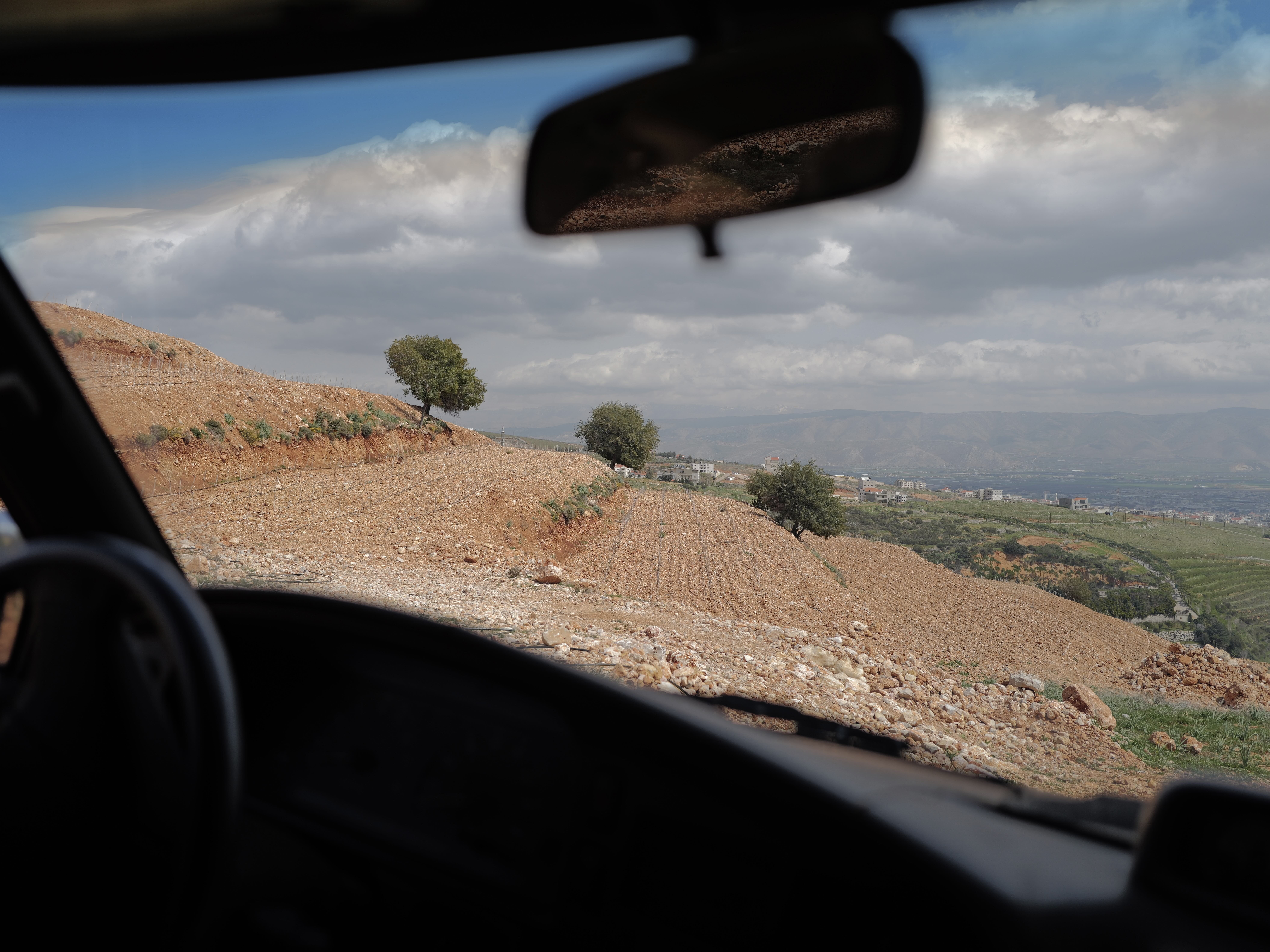 Fawzi Issa in his 4x4 in one of the Domaine des Tourelles vineyards in the Bekaa. (Credit: Matthieu Karam)
Fawzi Issa in his 4x4 in one of the Domaine des Tourelles vineyards in the Bekaa. (Credit: Matthieu Karam)
This expansion has also resulted in a larger team: With 46 employees in 2019, the winery now has 78. This figure rises to 200 when one counts seasonal workers.
What about the costs? “They’re rising by the minute,” said Fawzi Issa. Despite this, the oenologist didn’t shy away from new projects. Together with his partner Emile Issa al-Khoury and the rest of the team, they plan to open a restaurant on the winery in 2025, outsourced to a professional partner in the sector. The concept and menu will be developed with the Domaine des Tourelles team.
An 8- to 9-room guesthouse behind the estate is also planned for the next few years. “Domaine des Tourelles is back! It’s a real renaissance,” said Fawzi Issa.
This article was originally published in L'Orient-Le Jour. Translated by Joelle El Khoury.